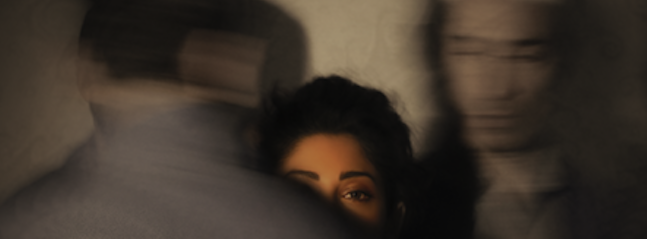An Interview with Neerja Naik
The actress is playing the title role in The Captive Queen at Shakespeare's Globe

Set in Twentieth Century Northern England during the last days of the woollen mills, The Captive Queen is a thrilling reimagining of the 1675 John Dryden restoration drama. Performed at the Sam Wanamaker Playhouse at Shakespeare's Globe, this play captures the timely themes of dismantling the patriarchy and the chaos of political infighting.
Playing the captive queen herself, actor Neerja Naik has an impressive background: she was Hermia in A Midsummer Night's Dream directed by Trevor Nunn, has worked with Peter Brooke at the NT Studio and was in Sold, a movie about sex trafficking, directed by Oscar winning Jeffrey Brown. Naik sat down with London Calling to reveal the mysteries of her most formidable and beguiling character.
London Calling: What is The Captive Queen about?
Neerja Naik: Love, power, virtue, politics, survival, patriarchy, empire, betrayal and there are couplets. Many, many couplets! The action kicks off when the Emperor falls in love with Indamora (the captive queen) who is in love with and promised to his son, Aurengzebe. After that pretty much all hell breaks loose. Family feuds, battles between brothers, fathers and sons. By the interval Indamora has four men in love with her, yet she only loves Aurengzebe. She must navigate her way through these men, whilst also trying to secure her survival and the life of the man she loves.
LC: What is so captivating about this Queen?
NN: Dryden’s words allow you to see how intelligent, quick witted and pragmatic she is. She finds herself in the most precarious of positions, at the whim of powerful men who surround her, and these characteristics allow her to persevere. She has a commitment to love and virtue but also recognises that the world is imperfect. This is something her lover Aurengzebe can’t seem to comprehend, and is one of the sources of their many arguments.
LC: This 1675 play is originally set during the Mughal Empire of India. How does this new setting of the woollen mills in Northern England change the story?
NN: The story is essentially the same. I remember getting the call for the audition and assuming we would be dressed up in beautiful Mughal costumes. At my recent costume fitting I was in green 80s trousers and a blue boiler suit mill jacket with pineapple hair! However we do wear jewel coloured silk scarves, which give that hint of India and the lavishness of the royal court. It will be interesting to discover how the world of the mill and the world of Dryden meet once we’re on the stage.
Neerja Naik in rehearsal for Barrie Rutter's The Captive Queen, (c) Nobby Clark
LC: You are working with director Barrie Rutter, the founder of the infamous theatre company Northern Broadsides. What is his rehearsal process like?
NN: It’s been an intense process of discovery. The play hasn’t been performed for over 300 years so as a cast have no reference of the play. It’s not like doing Romeo and Juliet. All we have is the text, which is both daunting and exciting. Barrie has wanted to put the play on for more than twenty years, and he’s asking us to deliver the text with the muscularity and the directness that Northern Broadsides is known for.
LC: What is it about this play that resonates with a modern day audience?
NN: The building blocks of human nature: jealousy, passion, power, love, and the desire to find meaning haven’t changed since the play was written.
LC: You are performing at the Globe in the Sam Wanamaker Playhouse, which is based on an original Jacobean theatre design. What is it like treading the boards at one of London's most famous historical sites?
NN: Oh gosh it’s so exciting! We’ve been on the stage once with all the candles lit so the production designers could see the space for lighting. It was magical. When I got the role I nerded out and watched all the YouTube videos on how the theatre was designed from the old plans, what it was like when they brought the wood in, and the artist’s process working on the original ceiling painting.
LC: What are the challenges you face as a BAME actor?
NN: I’m very conscious that most actors find it difficult to get work. As a female BAME actor that challenge is even harder as there are fewer roles out there. I feel like change is happening but it needs to keep going.
LC: What is the most unusual thing that has happened to you on stage?
NN: I once took a backwards step too far and stepped off the stage and into the audience whilst playing Hermia in A Midsummer Night’s Dream. The lady who I almost fell onto braced herself in fear. Luckily at the end of the show I was taking my bow in front of her and I mouthed a sorry and gave her a wink.
The Captive Queen is on at Shakespeare’s Globe from 2 February to 4 March. For more information and tickets, please see the website.